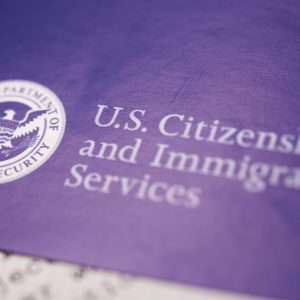Asylum/TPS
What is asylum?
Asylum status is a special legal protection available to people who have left their home country for their own safety and are afraid to return to any place within that country. Only persons who are already inside the United States can apply for asylum and they must do so within the first year after entering the U.S., with a few limited exceptions. |
The criteria for asylum is stricter than you might expect.
· First, being afraid to return to our home country is not enough by itself. You must show that you actually suffered persecution (significant harm) in the past in your home or you have fear that you will suffer persecution (significant harm) in the future. · Second, you must show that you personally have been harmed in the past or will be harmed in the future on account of one of the five protected grounds for asylum (i.e. “nexus”):
1. Race 2. Religion 3. Nationality 4. Political Opinion 5. Membership in a particular social group
· Third, you must show that the harm suffered was caused by the people whom the government cannot or will not oppose or by the government itself. |
What is not asylum?
· Asylum is not given to people fleeing war or civil disturbances · Asylum is not given to people from countries with widespread violence · Asylum is not given to people from countries with unstable governments · Asylum is not given to people who simply experience some form of discrimination · Asylum is not given just because your government is corrupt · Asylum is not given if the general economic situation in your country is bad |
Depending on the facts of your individual case, each of those things can be one factor in finding asylum, but these things alone are not enough to show asylum. You need to show specific reasons why YOU have had problems or will have problems in the future in your home country. General statements about your country being bad are not enough. |
How does a person apply for Asylum? There are three ways to enter into the process for asylum in the United States: |
1. Filing directly with the USCIS Asylum Office If you are already in the US (legally or illegally) you can file your application for asylum (Form I-589) directly with the USCIS which puts you into an “affirmative” asylum process with USCIS, as opposed to “defensive” asylum process with Immigration Court. Remember to file it within 1 year of your entry, with very limited exceptions. |
2. Requesting asylum at the Border with the U.S. If you are caught entered the U.S. illegally or if you present yourself to an official at the U.S. border or port of entry and you ask for asylum or state that you are afraid to return to your home country, you will then be placed into removal proceedings in immigration court. In some instances, you will be detained to have a credible fear interview at the border and if this interview is positive, you could receive a bond to leave the immigration detention center. In other instances, especially cases which involve families with minor children, you will be released from the immigration detention without having to pay a bond while you are awaiting your immigration court hearing. |
3. Asking for asylum in immigration court to defend against deportation If you are already living in the US and you are put into removal (deportation) proceedings, for example for being here illegally, you may seek asylum as a defense to being removed (deported) from the United States. |
What are the benefits of Asylum? 1. Work authorization while you wait for decision. Although work authorization is not automatic upon the filing of an asylum case, an application may apply for work authorization 150 days after filing and can be issued such authorization within 180 days of filing. 2. Asylum for Applicant’s family. If the applicant lists his or her spouse and children in the initial application and includes them as derivative (dependent) applicants, they will receive asylum with the principal applicant. If a relative was not included in the application, the principal applicant can file I-730 petition for his or her relative (regardless if relative is in the U.S. or abroad) 3. Permanent Resident Status. 1 year after receipt of asylum, the asylee may apply for lawful permanent resident status (green card) |
What is persecution? Persecution is defined generally as the infliction of suffering or harm, or a serious threat to your life or freedom. Harassment alone isn’t enough, but things like death threats, torture, imprisonment, constant surveillance, pressure to join a group engaging in illegal activity, interference with your privacy, family, home, or correspondence, or discrimination in matters like housing, education, or passport issuance have all been found to qualify. The threat against you needs to be a nationwide, because if you could avoid the problem simply by moving to another part of the country, you will not win your asylum. Also, the fact that you are suffering economically is not, by itself, considered a reason for granting asylum. Nor is it enough if someone has a grudge against you or has committed crimes against you for personal reasons. |
What does “on account of” mean (i.e. what is “nexus”)? “On account” means that the persecution must be connected to one of the five grounds. In other words, to win asylum, you must show that the person who harmed you in the past (your persecutor) was motivated to harm you because of your race, religion, nationality, membership in a particular social group, or political opinion. |
What do five of protected grounds mean? As mentioned above, the U.S. government grants asylum status to a person who has suffered or fears persecution that is based on one of only five grounds. The first three grounds—race, religion, and nationality are fairly self-explanatory. Let’s look at the remaining two—political opinion and membership in a particular social group. |
· Political opinion. Persecution of this kind means you hold opinions that the authorities do not tolerate, most likely critical of the government’s policies or methods. You would need to show that the authorities know about your opinions—otherwise, they would have no reason to come after you. It will help if you have, for example, spoken in public, written publicly about your criticisms, or taken part in antigovernment protests. People have proven persecution for political opinion based on having taken part in student demonstrations, been active in labor unions, advocated independence for a particular ethnic or LGBTQ group, joined an opposition political party or even expressed their feminist political opinions to their abusers. You can also qualify for asylum or refugee status based on political opinion if the authorities mistakenly assume that you hold certain opinions, perhaps based on some other personal characteristic like your religion or family group. (This is called “imputed political opinion.”) |
· Membership in a particular social group. This category is the most difficult of the five to define and is the most often argued about. A social group is described as a group sharing a common characteristic that is so fundamental to their individual identities that the members cannot—or should not be expected to—change it, the group has distinct boundaries for membership, and the group is recognized within society as a distinct entity. Examples of particular social groups whose members have been accepted as asylees by the U.S. government include: o tribes or ethnic groups o social classes (such as educated elite) o family relationships o gender in conjunction with other traits (for example, gender and domestic violence). o LGBTQ identities: Lesbian, gay, bi-sexual and transgender individuals have been found to belong to particular social groups o members or former members of the police or military (who may be targeted for assassination) o some gang-based groups, such as “witnesses who testify in court against gang members” (in the 9th Circuit). |
Please note that if you are applying for asylum based on your membership in a particular social group, be aware that the laws governing membership in a particular social group are subject to change and could vary considerably from one U.S. state to another and one judge to another. |
Does the Persecution Need to Have Come From the Government? No, the persecution does not only need to come from your country’s government or other authorities (such as police or security forces). Asylum law also recognizes persecution by groups that the government is unable to control, such as guerrillas, warring tribes or clans, paramilitary group, or organized vigilantes. However, the persecution must have some political or social basis—a member of a criminal network who comes after you just because you have not paid him off is not persecuting you according to asylum law. |
TPS Temporary Protected Status (TPS) is a form of temporary immigration relief available to people from specific countries designated by the U.S. Department of Homeland Security (DHS). TPS is intended to protect foreign nationals in the United States from being returned to their home countries if the home country became unsafe to return during the time in which the individuals were in the U.S. TPS designations may result from civil war, natural disaster, or other conditions that make the return of foreign nationals from that particular country unreasonable. TPS allows applicants to obtain work authorization and permission to travel abroad. If you are from Ukraine, Burma (Myanmar), Venezuela, Syria, South Sudan, Sudan, Yemen, Somalia, Nicaragua, Nepal, Haiti, El Salvador and Honduras and meet certain criteria, you might be eligible for a special Temporary Protected Status (TPS). |






